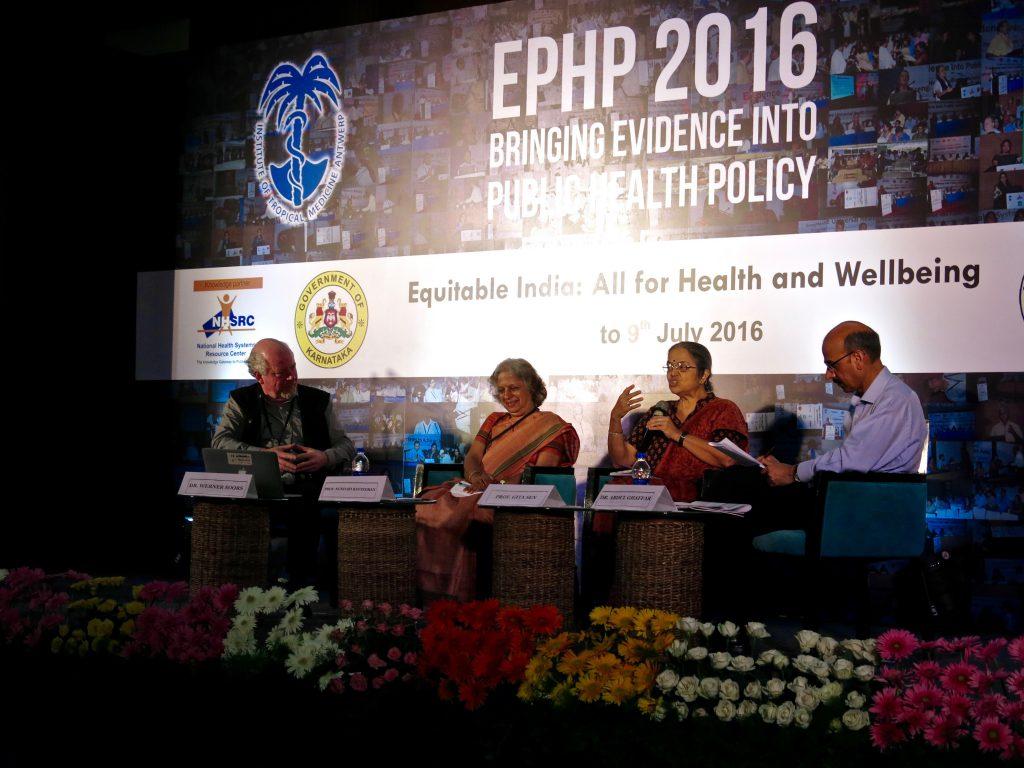In India, a 1.2 billion people, 29 states and 7 union territories South Asian giant, infant mortality finally came down to 40 deaths per 1000 live births. Behind this national average hide both a comforting 12/1000 in the southern state of Kerala and an unacceptable 54/1000 in the north-eastern state of Assam. Out of 100 kids India-wide, 5 die before age 5. But among India’s tribal population, this figure rises to 9, almost double.
There is little doubt that these health disparities should be considered inequitable: social health inequities’ “textbook definition” of being ‘systematic, socially produced, and unfair’ clearly applies to them. All the same, health inequities in India (as elsewhere in the world) are widening. Clearly, there is a need for better understanding of the causal mechanisms of health inequities, and for effective policies to reduce them.
The Institute of Public Health (IPH, Bangalore), in collaboration with the Institute of Tropical Medicine (ITM, Antwerp), has made health equity the central theme of its 3rd EPHP Conference (Bringing Evidence into Public Health Policy, Bangalore, 7-9 July 2016). In a pre-conference workshop (7 July) cutting-edge concepts and methods for health equity research were presented and discussed. The conference itself (8-9 July), under the banner ‘Equitable India: All for Health and Wellbeing’ makes the point that the road to equity needs a joint effort. As the organizers state in the editorial of the EPHP abstract book, published in BMJ Global Health: “Health cannot be separated from overall wellbeing. If we want to bring health closer to the people, to all of them according to their needs, the policy will have to embrace intersectoral action”.
The two-day Conference will bring together over 300 delegates, including researchers, academics and policy makers, from across the world. Sessions will address a wide range of topics on inequities in maternal care to urban health, and health systems and policy interventions to address inequities.

From right to left: Abdul Ghaffar (WHO-Alliance for Health Policy and Systems Research, Geneva), Gita Sen (Ramalingaswami Centre on Equity & Social Determinants of Health, Delhi), Sundari Ravindran (Achutha Menon Centre for Health Science Studies, Werner Soors (Institute of Tropical Medicine, Antwerp)